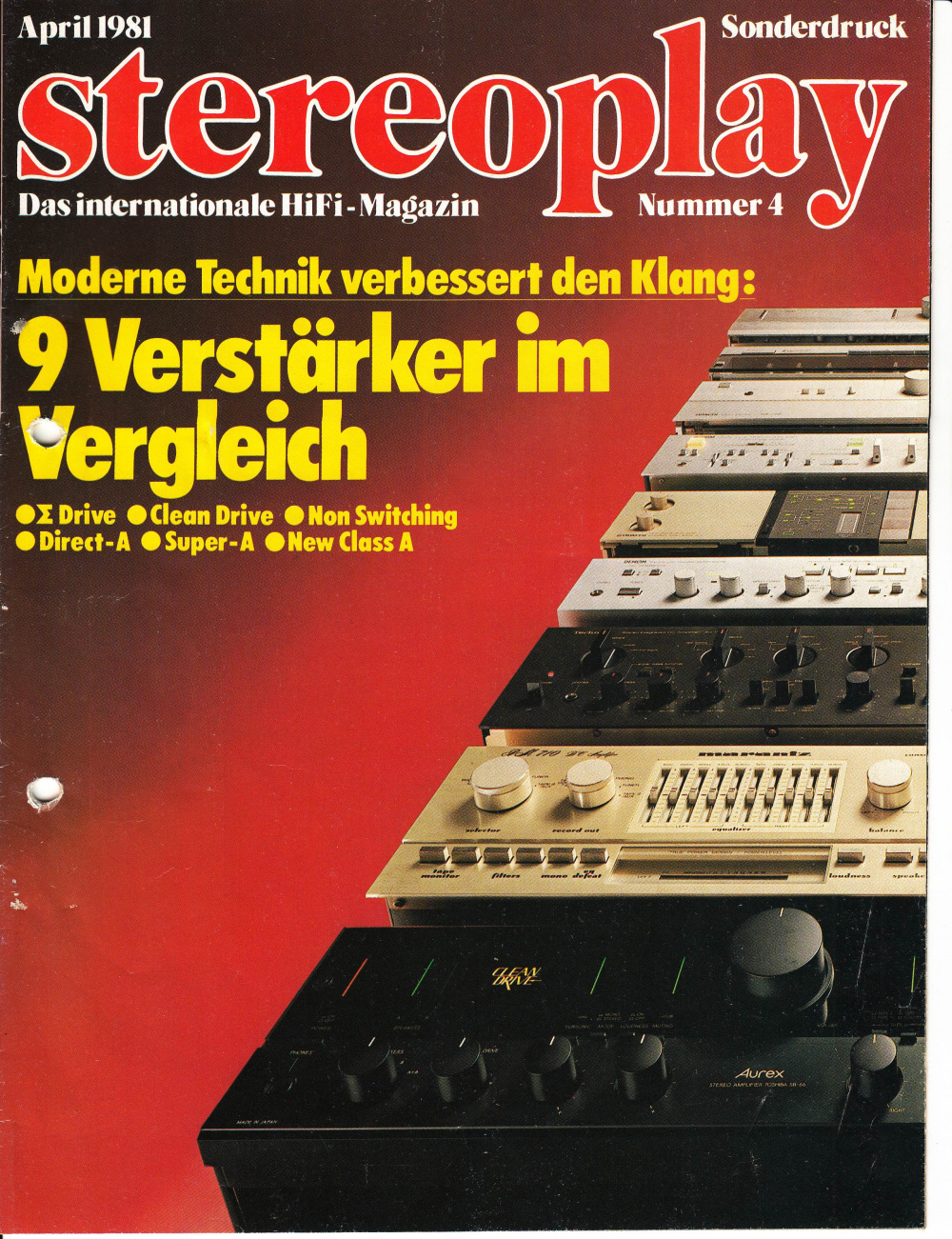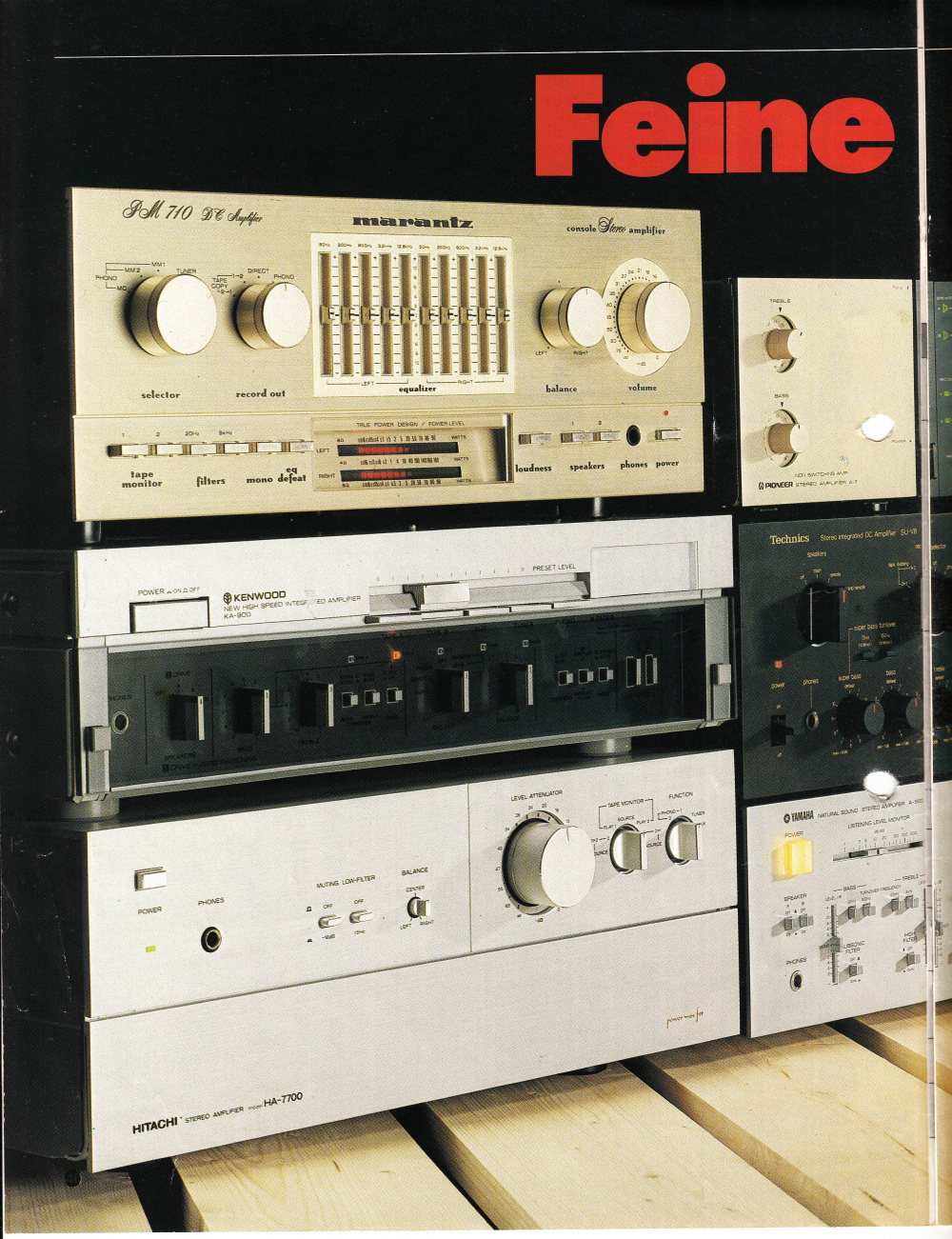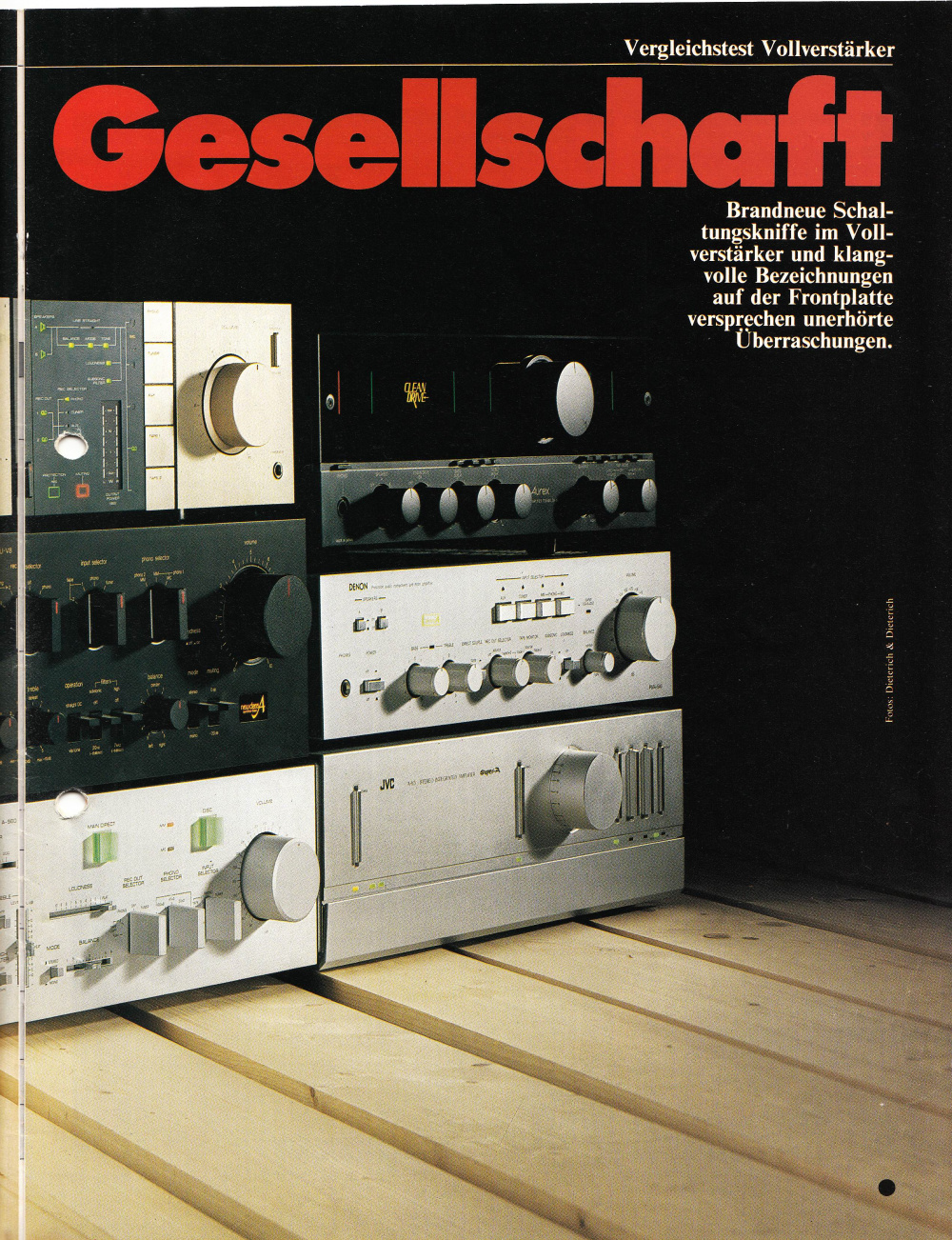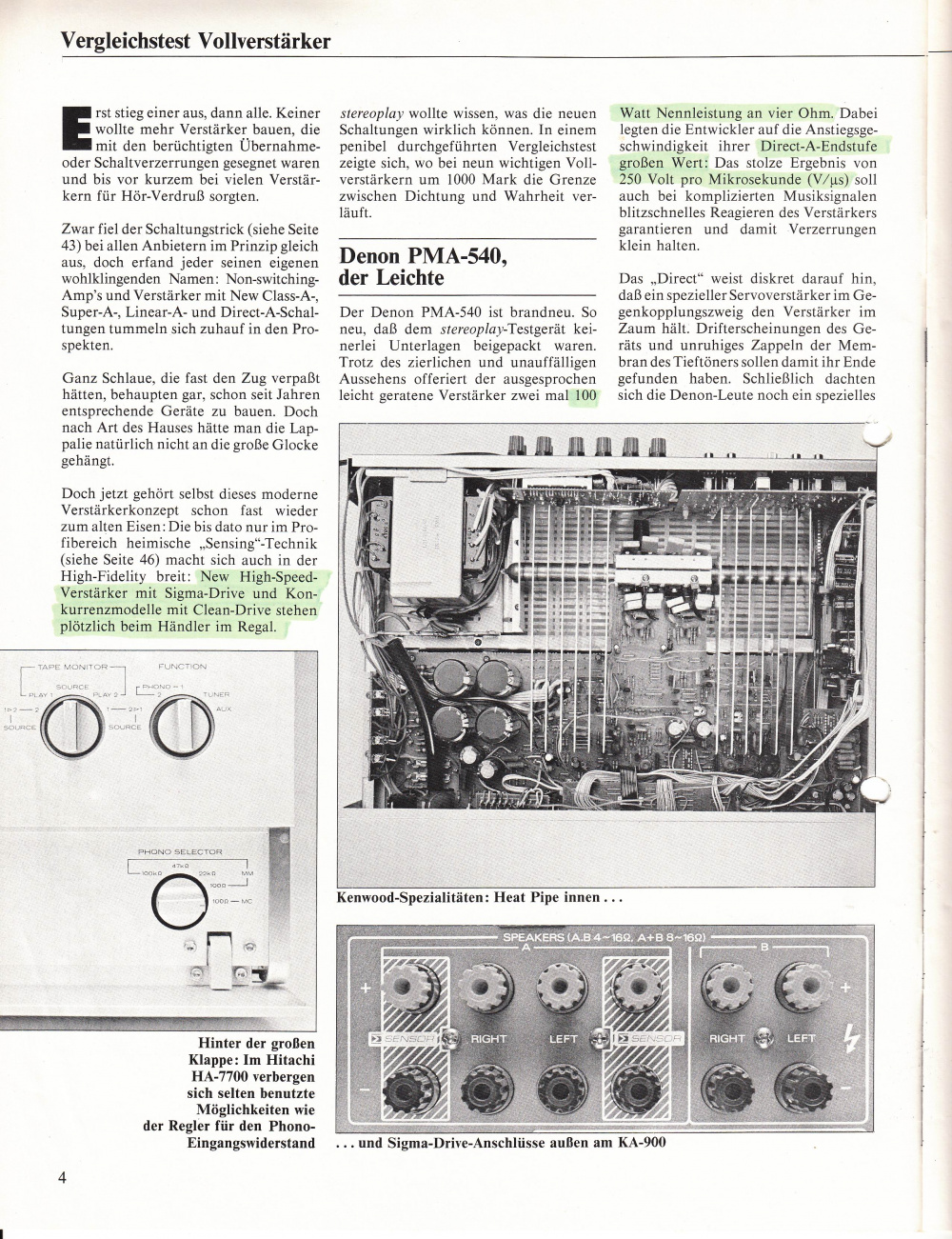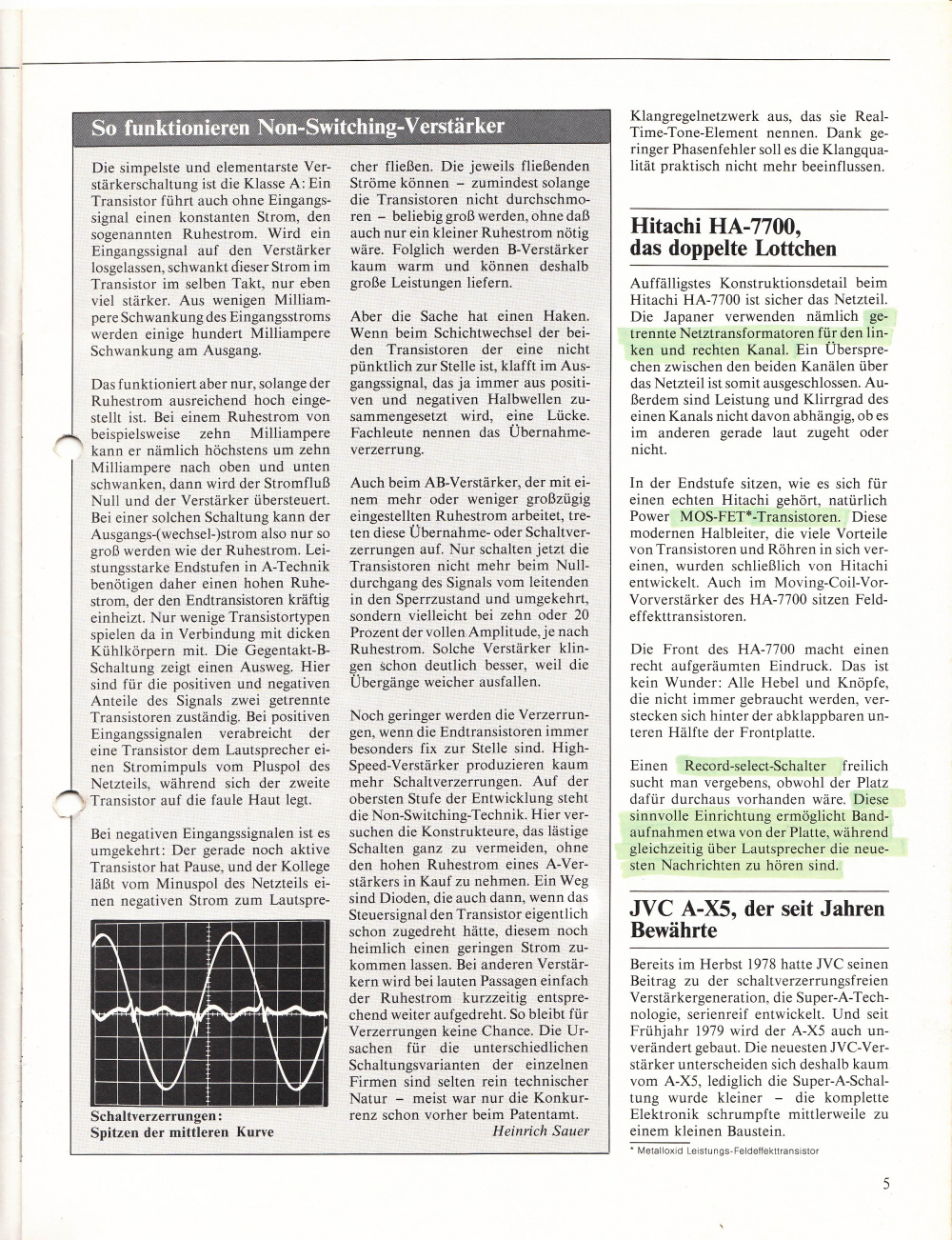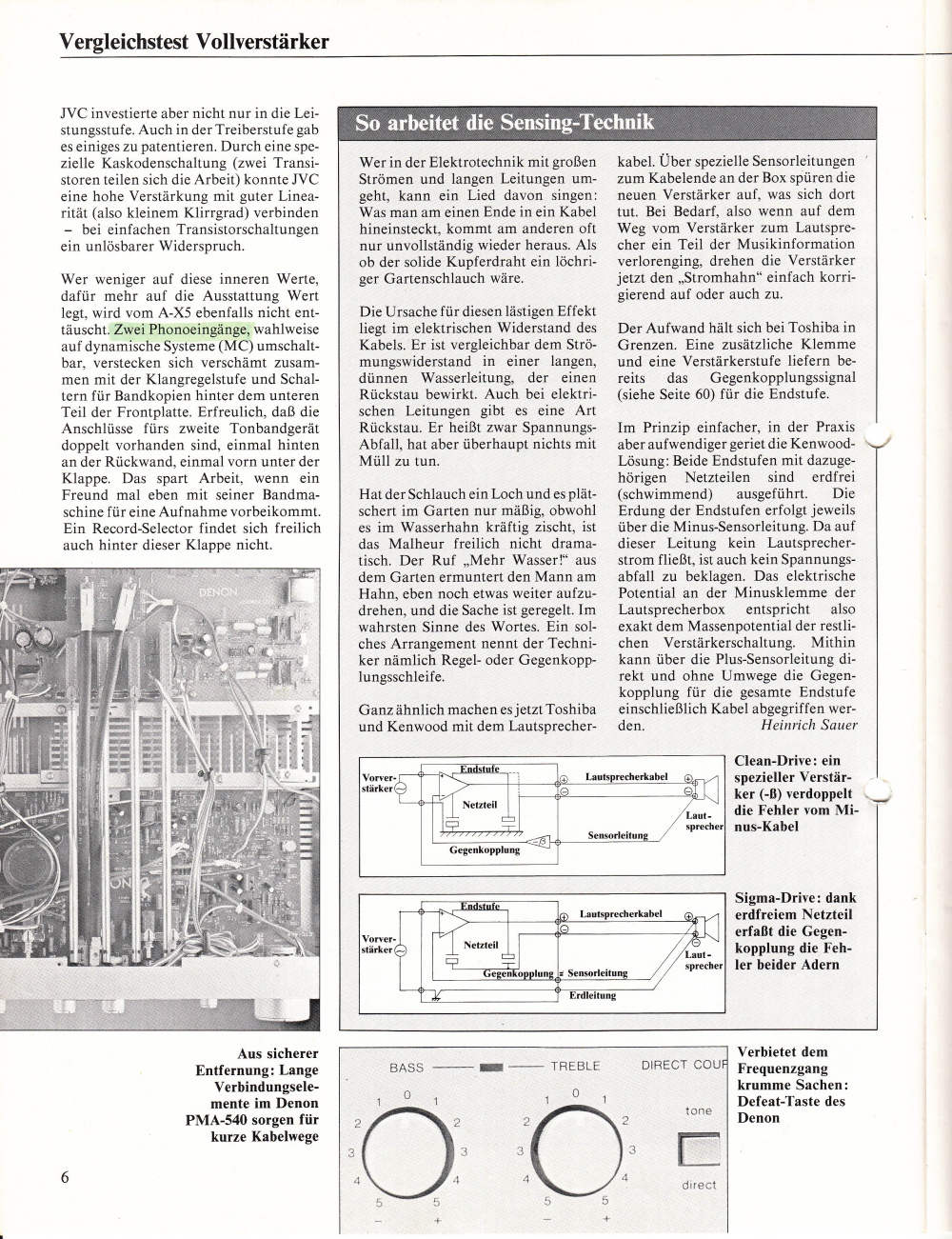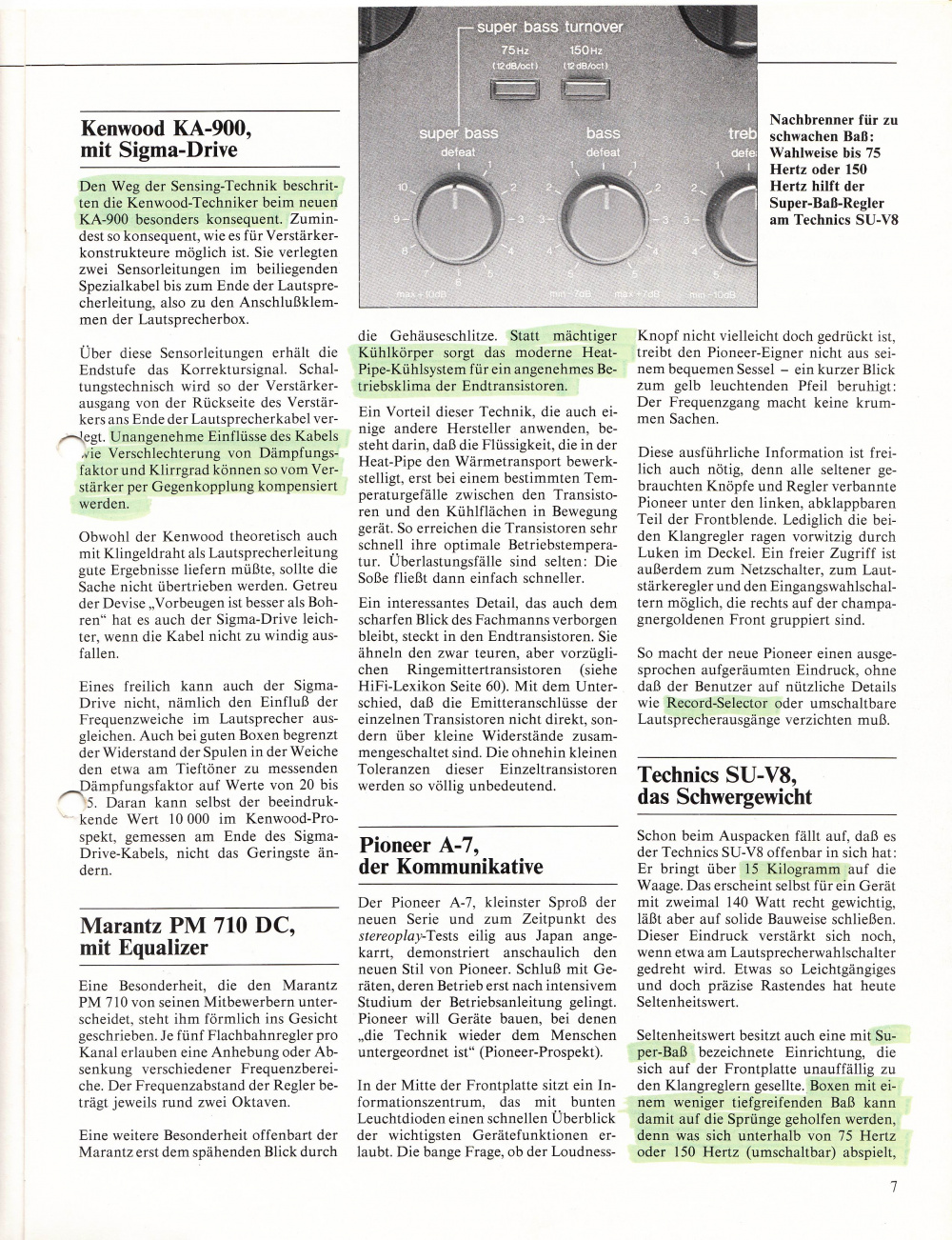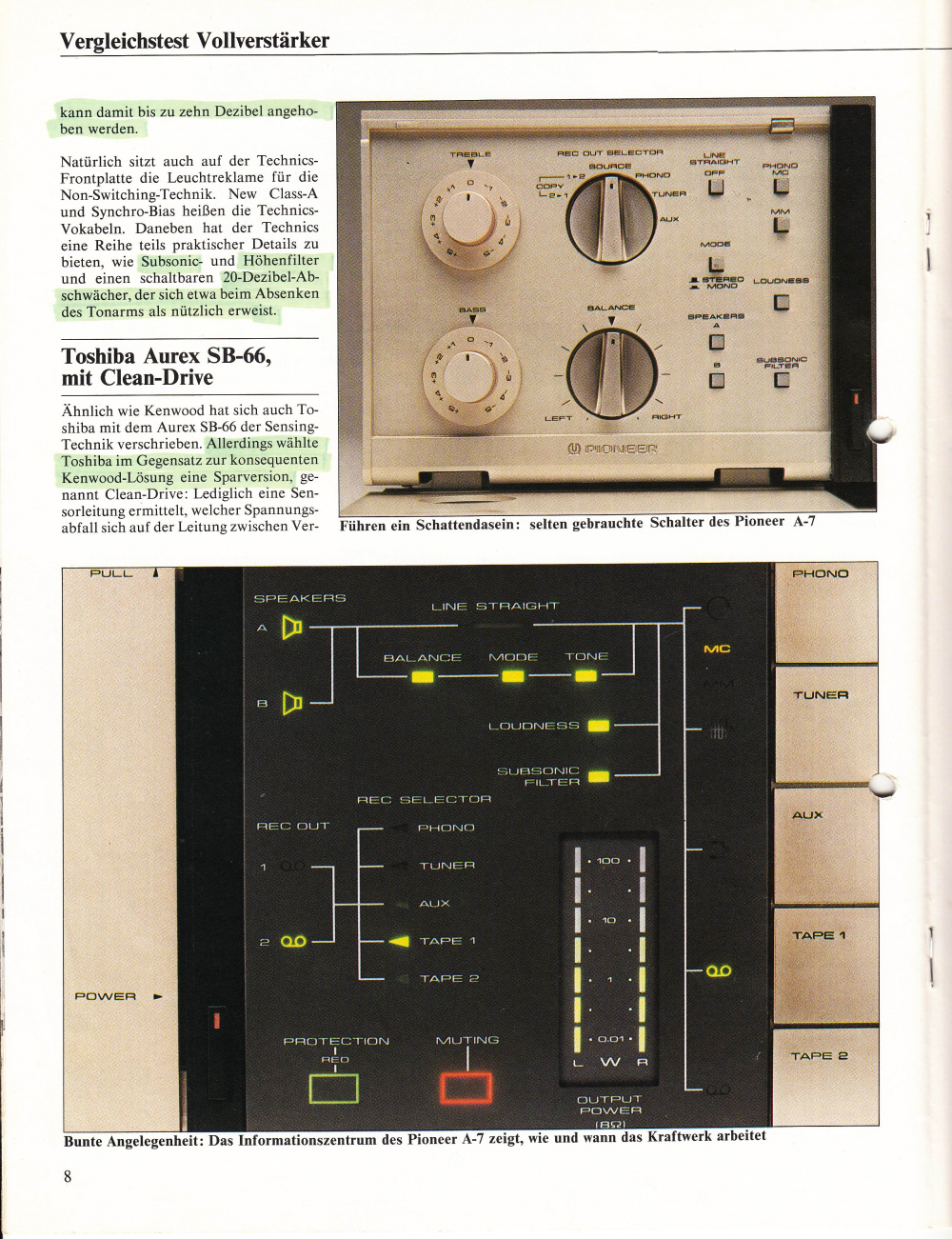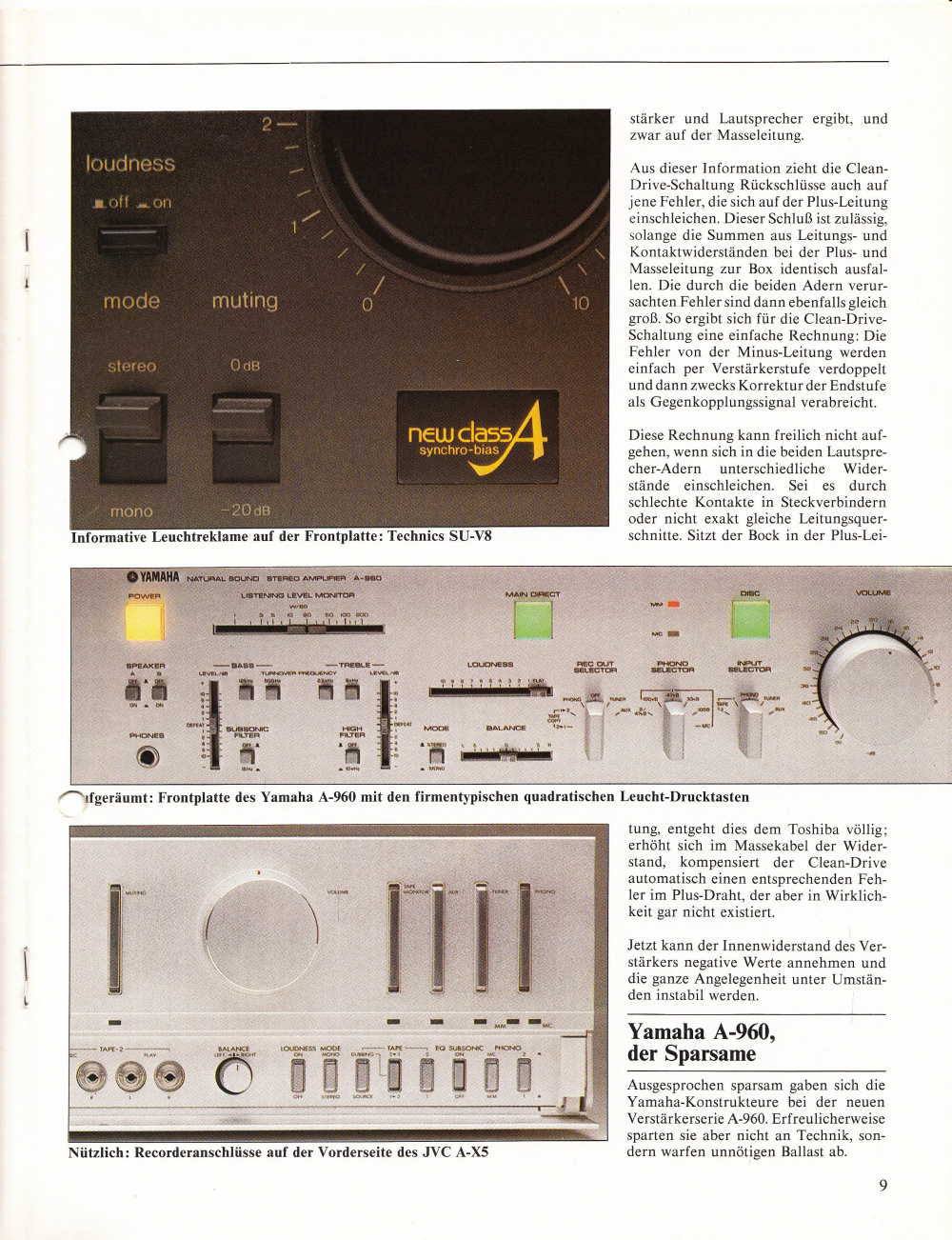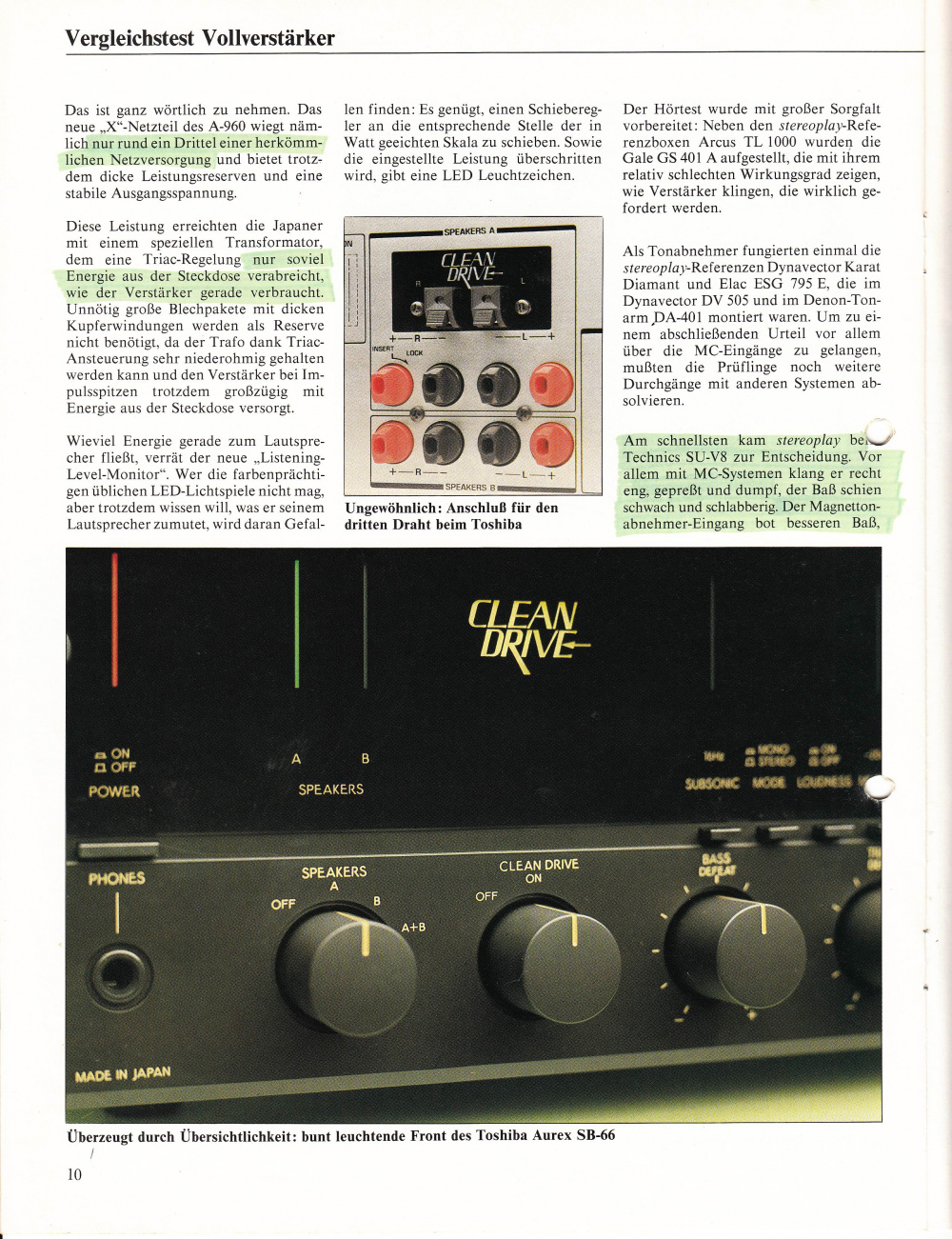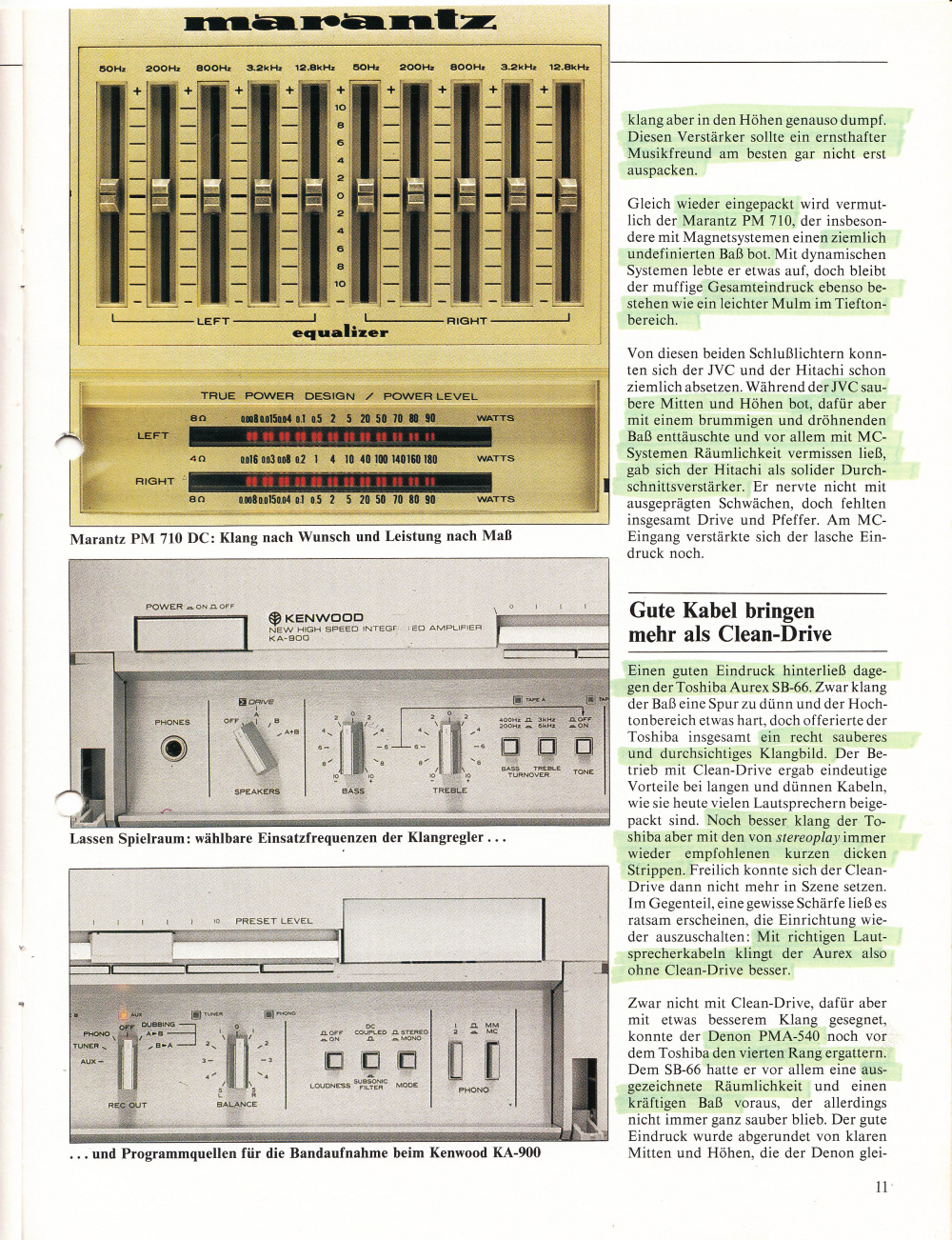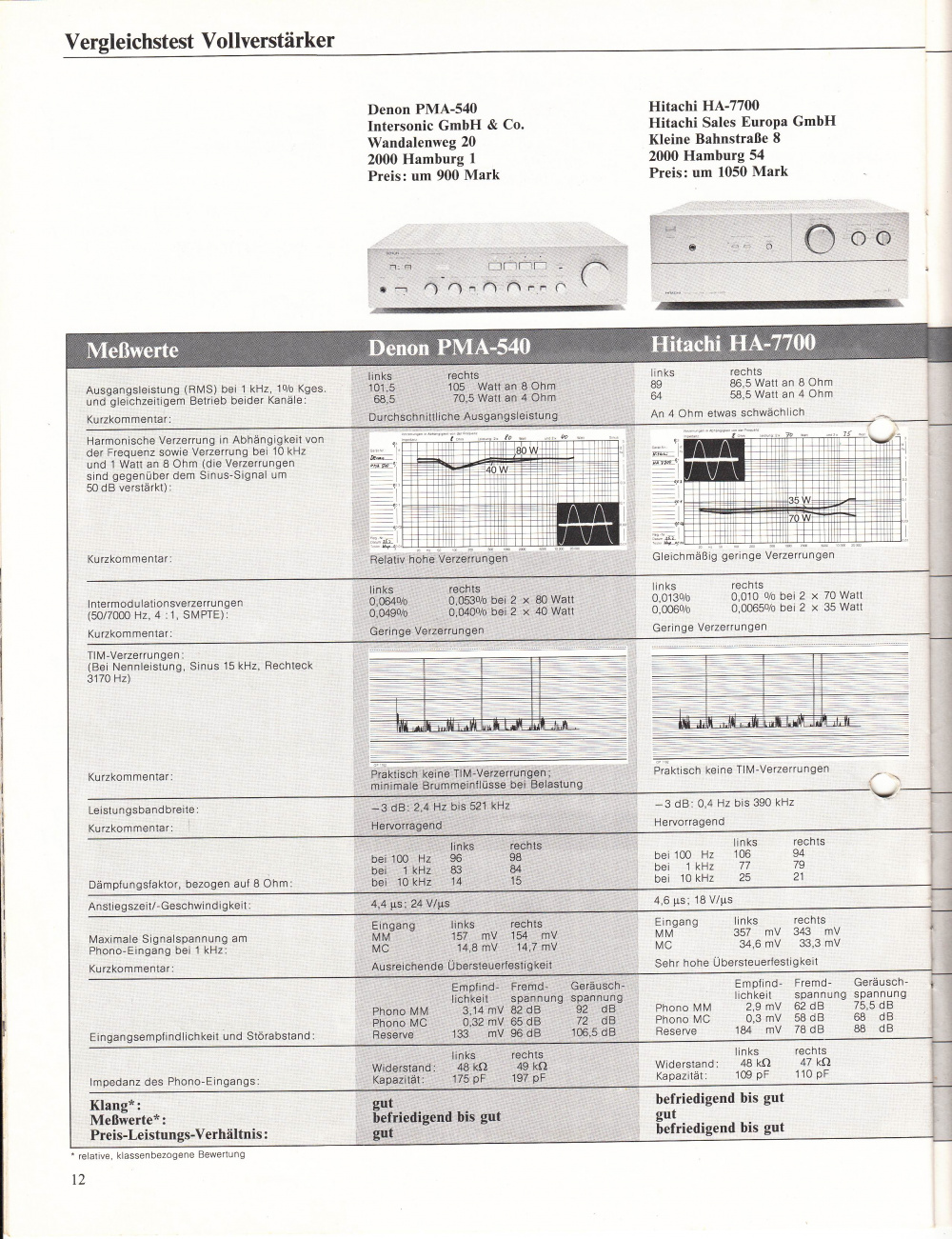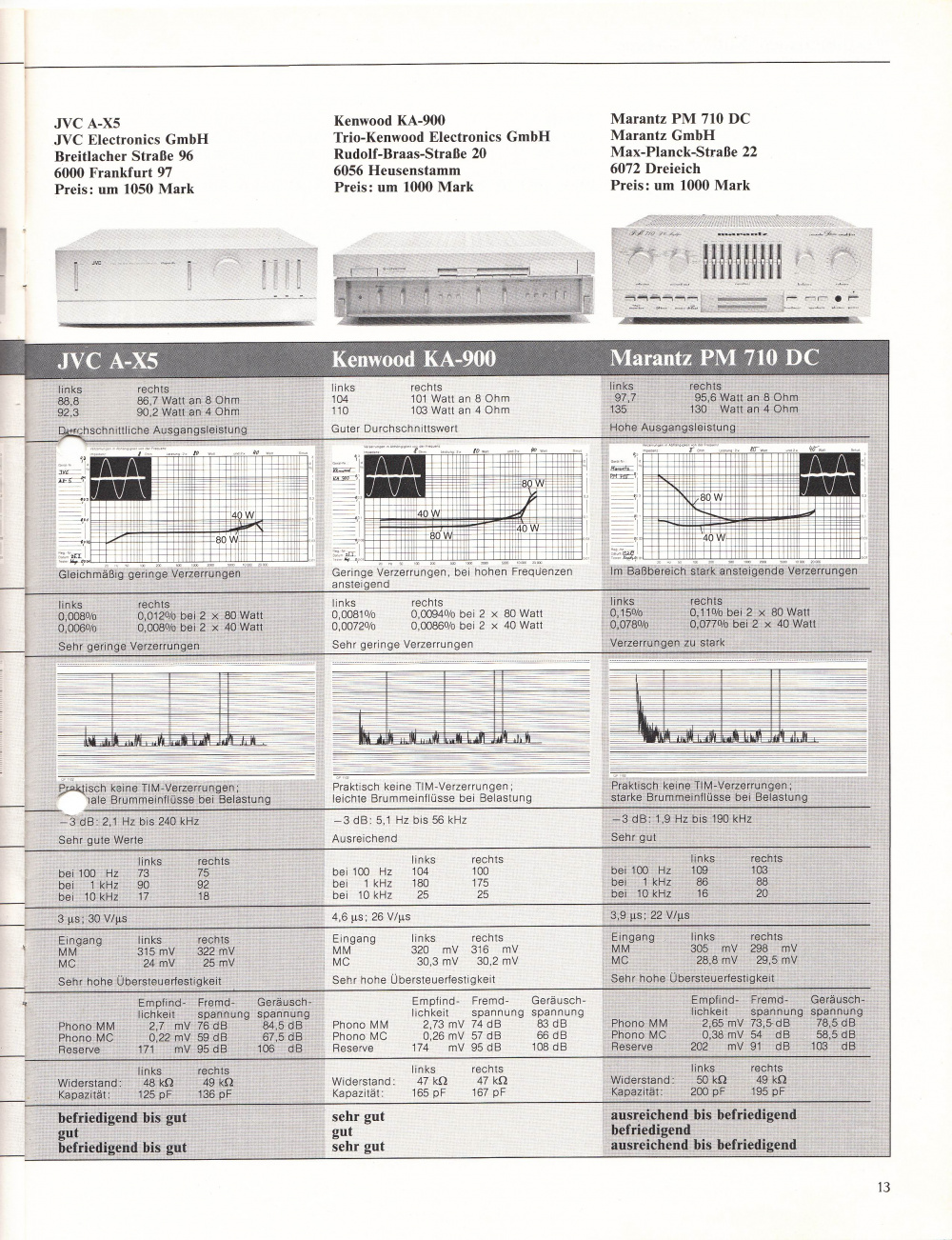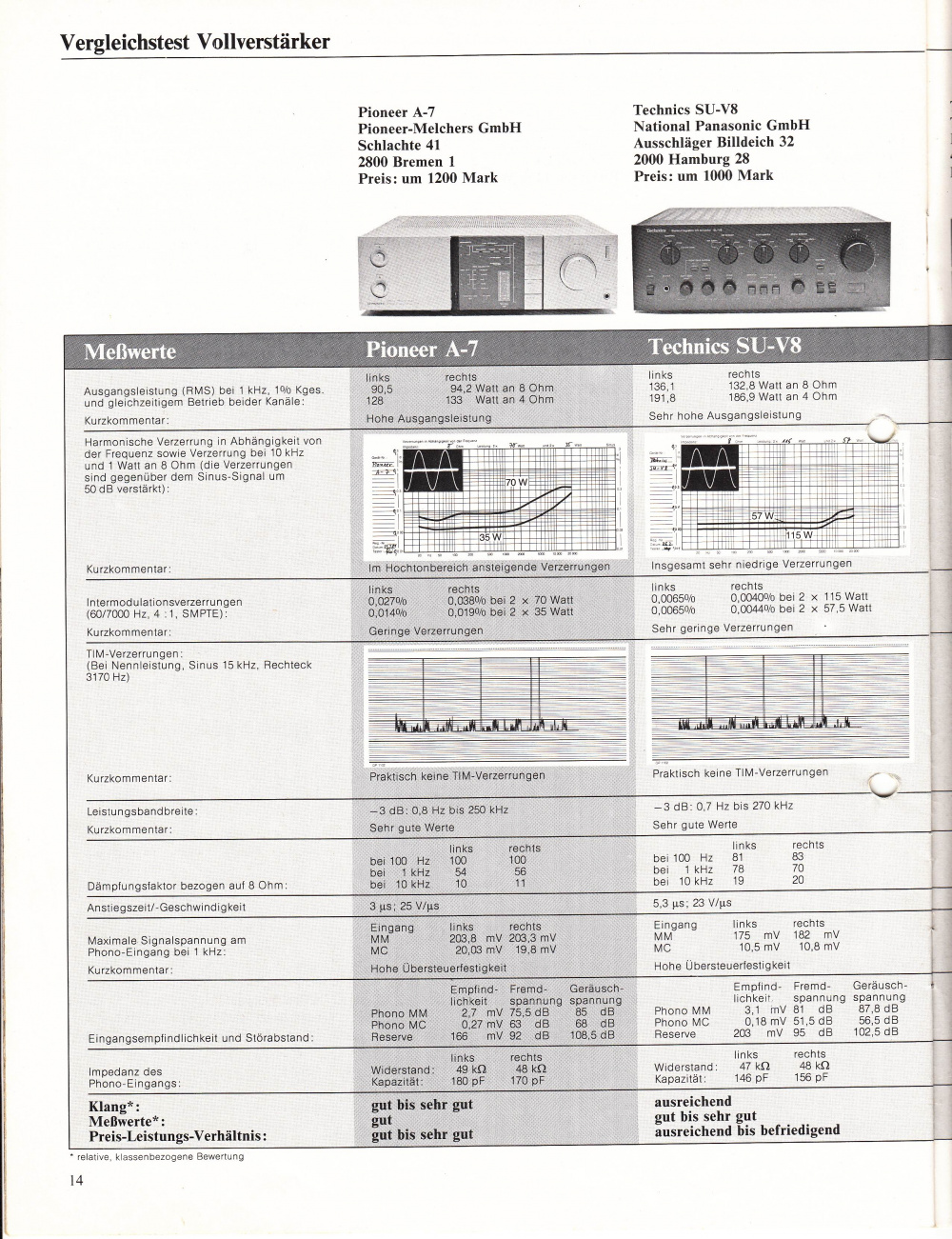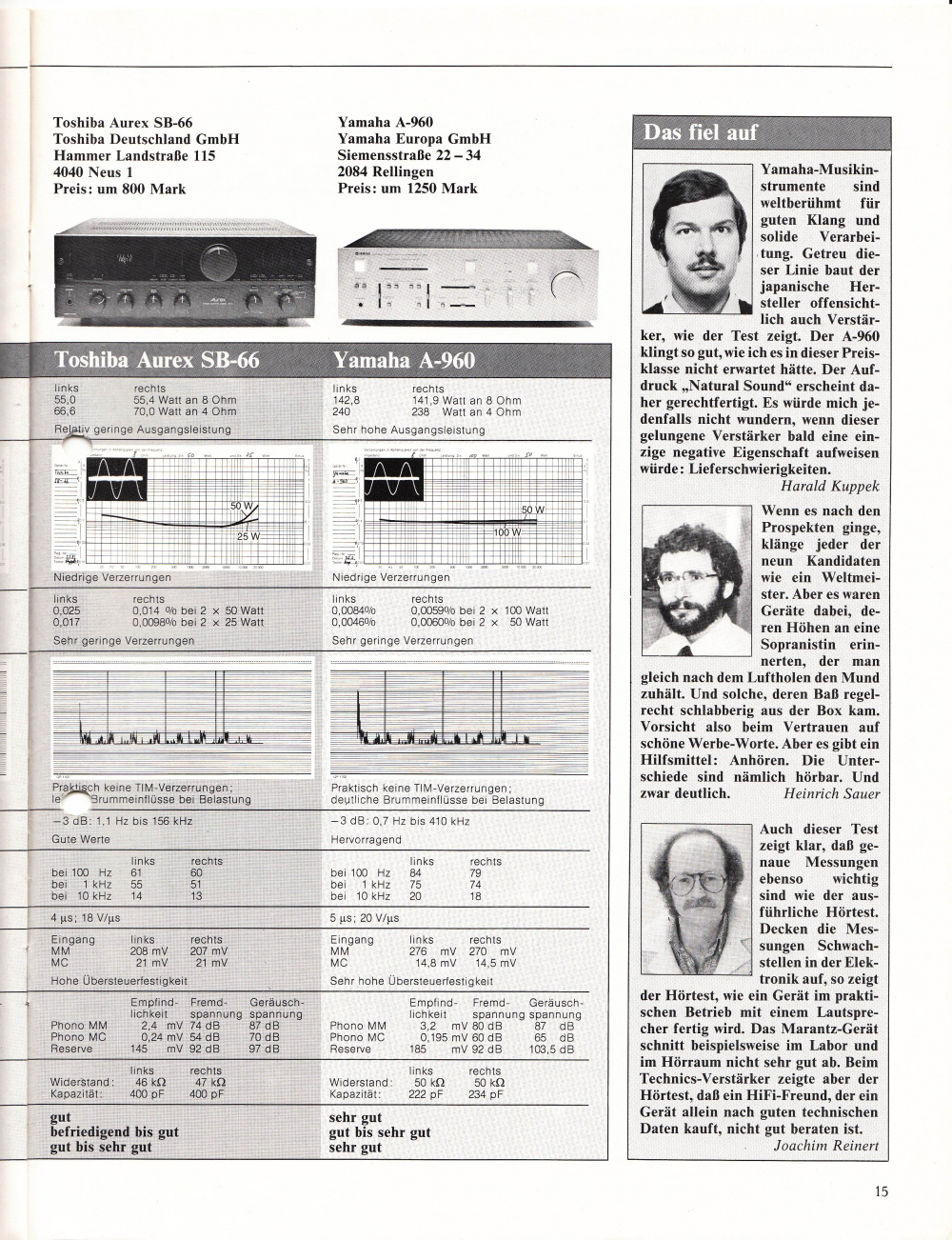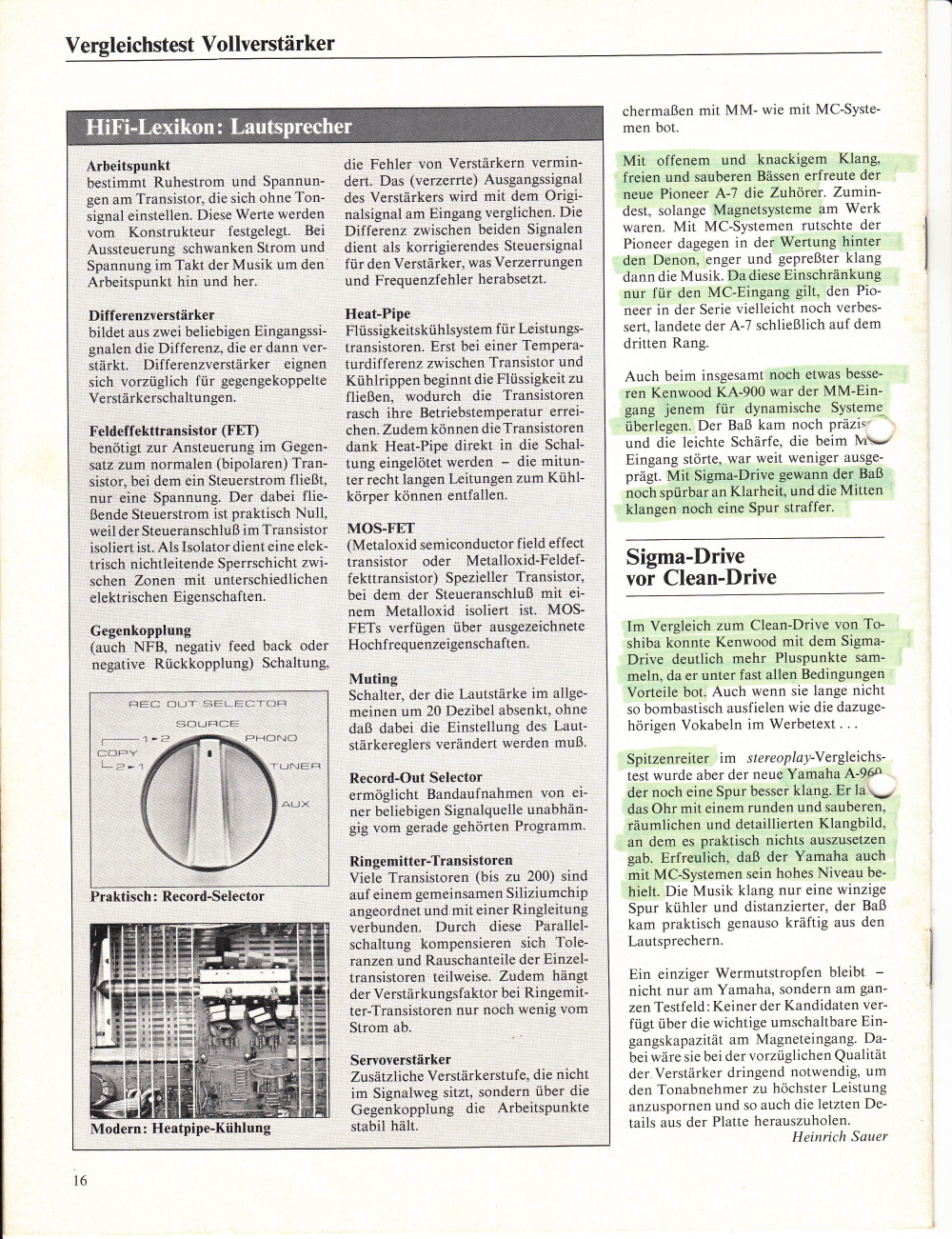Difference between revisions of "JVC A-X 5"
m (→Pictures) |
|||
| (12 intermediate revisions by 4 users not shown) | |||
| Line 1: | Line 1: | ||
__NOTOC__ | __NOTOC__ | ||
| − | == | + | == Data == |
| − | '''''JVC | + | {{navigation}} |
| − | + | '''General:''' | |
| + | * Manufacturer: [[JVC]] | ||
| + | * Model: A-X 5 | ||
| + | * Type: Super-A integrated amplifier | ||
| + | * Years of manufacture: 1979 - 1981 | ||
| + | * Made in: Japan | ||
| + | * Color: Silver | ||
| + | * Remote control: no | ||
| + | * Power consumption: 500 W max. | ||
| + | * Dimensions: 450 x 140 x 420 mm (WxHxD) | ||
| + | * Weight: 11,5 kg | ||
| + | * Original price approx.: 1'150 DM (list price) | ||
| − | ''' | + | '''Connections:''' |
| − | * | + | * Inputs: |
| − | * | + | ** 2x Phono (MM or MC) |
| − | * | + | ** Phono MM : 2.5 mV/ 47 kOhm (max. 250 mV) |
| − | * | + | ** Phono MC : 0.2 mV/ 100 Ohm (max. 18 mV) |
| − | * | + | ** Tuner, Aux, Tape 1, 2: 200 mV/ 47 kOhm. |
| − | * | + | * Outputs: |
| − | * | + | ** Tape 1,2 Rec Out: 200 mV/ 680 Ohm. |
| − | * | + | ** 2 pairs of speakers |
| − | * | + | ** Headphones |
| − | * | ||
| − | * | ||
| − | ''' | + | '''Technical Data:''' |
| − | * | + | * Continuous output power |
| − | ** | + | ** 8 Ohm: 2 x 70 Watt (8 Ohm, 20- 20.000 Hz, THD: 0,007 %) |
| − | ** | + | * Dynamic power |
| − | * | + | ** 8 Ohm: ~ 2 x 100 Watt |
| − | ** | + | * Intermodulation distortion: |
| − | * | + | ** 0.004% (60 Hz: 7 kHz = 4:1) at 70 watts,8 ohms. |
| − | * | + | * Attenuation factor: |
| − | ** | + | ** 75 (1 kHz,8 ohms) |
| − | ** 2 | + | * Frequency response: DC - 100 kHz +0, -3 dB |
| − | ** | + | * Power bandwidth : 5- 70,000 Hz |
| + | * RIAA MC +- 0.3 dB, 20- 20,000 Hz | ||
| + | * RIAA MM +- 0.2 dB, 20- 20,000 Hz | ||
| + | * Signal-to-noise ratios MC/ MM/ Line: 70 dB/ 85 dB/ 110 dB | ||
| + | * Tone control: Yes | ||
| + | Bass: +- 8 dB at 100 Hz | ||
| + | Treble: +- 8 dB at 10,000 Hz | ||
| + | * Loudness: switchable, adjustable | ||
| + | * Subsonic: switchable, 18 Hz - 6 dB/ Oct. | ||
| + | * Muting: switchable, -20 dB | ||
| + | |||
| + | |||
| + | '''Special features:''' | ||
| + | * DC-Servo phono preamplifier | ||
| + | * Super-A output stages | ||
| + | * 3-stage DC construction with passive preamplifier | ||
| + | * fully discrete construction of the audio electronics | ||
| + | |||
| + | |||
| + | == Notes == | ||
| + | * Other models in the same series: | ||
| + | * Integrated amplifiers: | ||
| + | * [[JVC A-X 1]] | ||
| + | * [[JVC A-X 2]] | ||
| + | * [[JVC A-X 3]] | ||
| + | * [[JVC A-X 4]] | ||
| + | * [[JVC A-X 5]] | ||
| + | * [[JVC A-X 7]] | ||
| + | * [[JVC A-X 9]] | ||
| − | + | * [[tuner]] | |
| − | * | + | * [[JVC T-X 5]] |
| − | * | + | * [[JVC T-X 6 L]] |
| − | |||
| − | |||
| − | |||
| − | |||
| − | |||
| − | |||
| − | |||
| − | |||
| − | * | ||
| − | |||
| − | |||
| − | |||
| − | |||
| − | |||
| − | |||
| − | |||
| − | |||
| − | + | [[File:C:\Users\luise\Pictures\JVC\A-X5\A-X5|thumb]] | |
| − | * | + | == Pictures == |
| − | + | * Picture: JVC A-X 5 | |
| − | + | https://hifi-wiki.com/images/archive/6/67/20241118014351%21C--Users-luise-Pictures-JVC-A-X5-A-X5.png | |
| − | |||
| − | + | * Picture: JVC A-X 5 | |
| + | https://hifi-wiki.com/images/6/67/C--Users-luise-Pictures-JVC-A-X5-A-X5.png | ||
| − | |||
| − | |||
| − | |||
| − | |||
| − | |||
| − | |||
| − | |||
| − | |||
| − | |||
| − | |||
| − | |||
| − | |||
| − | |||
| − | |||
| − | |||
| − | |||
| − | |||
| − | |||
| − | |||
| − | |||
| − | |||
| − | |||
| − | + | * Picture: JVC A-X 5 | |
http://www.hifi-wiki.de/images/7/7b/JVC_A-X5_front_2.jpg | http://www.hifi-wiki.de/images/7/7b/JVC_A-X5_front_2.jpg | ||
| + | |||
| + | * Picture: JVC A-X 5 | ||
http://www.hifi-wiki.de/images/e/ed/JVC_A-X5_backside.jpg | http://www.hifi-wiki.de/images/e/ed/JVC_A-X5_backside.jpg | ||
| − | == | + | == Tests == |
| + | |||
| + | * Stereoplay April 1981 9 amplifiers in comparison | ||
| + | |||
| + | [[File:Stereoplay April 1981 9 Verstärker im Vergleich 01.jpg|1000px]] | ||
| + | |||
| + | [[File:Stereoplay April 1981 9 Verstärker im Vergleich 02.jpg|1000px]] | ||
| + | |||
| + | [[File:Stereoplay April 1981 9 Verstärker im Vergleich 03.jpg|1000px]] | ||
| + | |||
| + | [[File:Stereoplay April 1981 9 Verstärker im Vergleich 04.jpg|1000px]] | ||
| + | |||
| + | [[File:Stereoplay April 1981 9 Verstärker im Vergleich 05.jpg|1000px]] | ||
| + | |||
| + | [[File:Stereoplay April 1981 9 Verstärker im Vergleich 06.jpg|1000px]] | ||
| + | |||
| + | [[File:Stereoplay April 1981 9 Verstärker im Vergleich 07.jpg|1000px]] | ||
| + | |||
| + | [[File:Stereoplay April 1981 9 Verstärker im Vergleich 08.jpg|1000px]] | ||
| + | |||
| + | [[File:Stereoplay April 1981 9 Verstärker im Vergleich 09.jpg|1000px]] | ||
| + | |||
| + | [[File:Stereoplay April 1981 9 Verstärker im Vergleich 10.jpg|1000px]] | ||
| + | |||
| + | [[File:Stereoplay April 1981 9 Verstärker im Vergleich 11.jpg|1000px]] | ||
| + | |||
| + | [[File:Stereoplay April 1981 9 Verstärker im Vergleich 12.jpg|1000px]] | ||
| + | |||
| + | [[File:Stereoplay April 1981 9 Verstärker im Vergleich 13.jpg|1000px]] | ||
| + | |||
| + | [[File:Stereoplay April 1981 9 Verstärker im Vergleich 14.jpg|1000px]] | ||
| + | |||
| + | [[File:Stereoplay April 1981 9 Verstärker im Vergleich 15.jpg|1000px]] | ||
| + | |||
| + | [[File:Stereoplay April 1981 9 Verstärker im Vergleich 16.jpg|1000px]] | ||
| + | |||
| + | |||
| + | |||
| + | == Reports == | ||
| + | * Quite rare integrated amplifier from the late seventies by JVC in the then fashionable pseudo-puristic front flap design. | ||
| + | * Compared to the big brother A-X9 noticeably slimmed down in terms of haptics, internal design and circuit luxury equipment, but compared to this hardly impoverished quality by a sophisticated and well-equipped audio electronics, which is currently an average "high-end" integrated amplifier of the 1500 € class would be good to face - but then ultimately not offered there. | ||
| + | The silicon and circuitry used in the A-X5 is, from today's point of view, simply exquisite, for example: | ||
| + | 2SK146 JFETs in the phono preamplifier, 2SK150 JFETs in the Class-A driver stage and 2SC2525L/ 2SA1075 RETs as output stage. | ||
| + | ** Zero electrolytic capacitors in signal path and a true DC design not only of individual amplifier stages but of the entire device. | ||
| + | * The only coupling capacitors are a couple of oversized PP foil C's at the output of the Phonopre`s. | ||
| + | The whole thing runs at +- 50V and has a bandwidth that would make the amp usable as an HF amplifier. | ||
| + | Separate transformer windings for phonopre and driver stage. 2 x 6800 µF charging electrolytic capacitors per channel for the output stages and complex voltage regulators for the preamplifiers. | ||
| + | Everything is of course fully discrete. | ||
| + | Of course the A-X5 needs a fresh set of electrolytic capacitors after 34 years, but thanks to the careful design of the circuitry, the amount of capacitors is manageable. | ||
| + | * On the negative side, the A-X5 offers quite modest crosstalk attenuation between inputs and is not exactly low impedance stable. | ||
| + | * In this respect a typical Seventies amp, which should not be concealed here. | ||
| + | |||
| + | |||
== Links == | == Links == | ||
| − | [[ | + | |
| + | [[Category:Integrated amplifier]] | ||
Latest revision as of 20:50, 17 November 2024
Data
General:
- Manufacturer: JVC
- Model: A-X 5
- Type: Super-A integrated amplifier
- Years of manufacture: 1979 - 1981
- Made in: Japan
- Color: Silver
- Remote control: no
- Power consumption: 500 W max.
- Dimensions: 450 x 140 x 420 mm (WxHxD)
- Weight: 11,5 kg
- Original price approx.: 1'150 DM (list price)
Connections:
- Inputs:
- 2x Phono (MM or MC)
- Phono MM : 2.5 mV/ 47 kOhm (max. 250 mV)
- Phono MC : 0.2 mV/ 100 Ohm (max. 18 mV)
- Tuner, Aux, Tape 1, 2: 200 mV/ 47 kOhm.
- Outputs:
- Tape 1,2 Rec Out: 200 mV/ 680 Ohm.
- 2 pairs of speakers
- Headphones
Technical Data:
- Continuous output power
- 8 Ohm: 2 x 70 Watt (8 Ohm, 20- 20.000 Hz, THD: 0,007 %)
- Dynamic power
- 8 Ohm: ~ 2 x 100 Watt
- Intermodulation distortion:
- 0.004% (60 Hz: 7 kHz = 4:1) at 70 watts,8 ohms.
- Attenuation factor:
- 75 (1 kHz,8 ohms)
- Frequency response: DC - 100 kHz +0, -3 dB
- Power bandwidth : 5- 70,000 Hz
- RIAA MC +- 0.3 dB, 20- 20,000 Hz
- RIAA MM +- 0.2 dB, 20- 20,000 Hz
- Signal-to-noise ratios MC/ MM/ Line: 70 dB/ 85 dB/ 110 dB
- Tone control: Yes
Bass: +- 8 dB at 100 Hz Treble: +- 8 dB at 10,000 Hz
- Loudness: switchable, adjustable
- Subsonic: switchable, 18 Hz - 6 dB/ Oct.
- Muting: switchable, -20 dB
Special features:
- DC-Servo phono preamplifier
- Super-A output stages
- 3-stage DC construction with passive preamplifier
- fully discrete construction of the audio electronics
Notes
- Other models in the same series:
- Integrated amplifiers:
- JVC A-X 1
- JVC A-X 2
- JVC A-X 3
- JVC A-X 4
- JVC A-X 5
- JVC A-X 7
- JVC A-X 9
Pictures
- Picture: JVC A-X 5
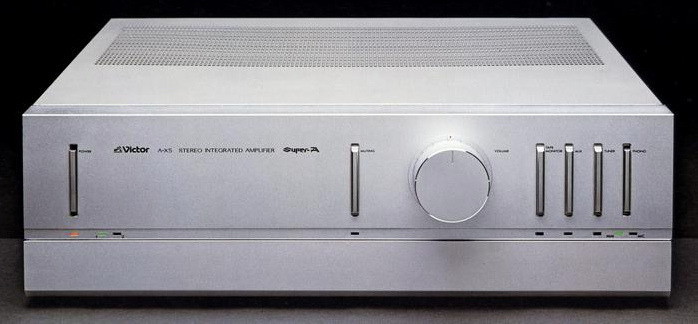
- Picture: JVC A-X 5
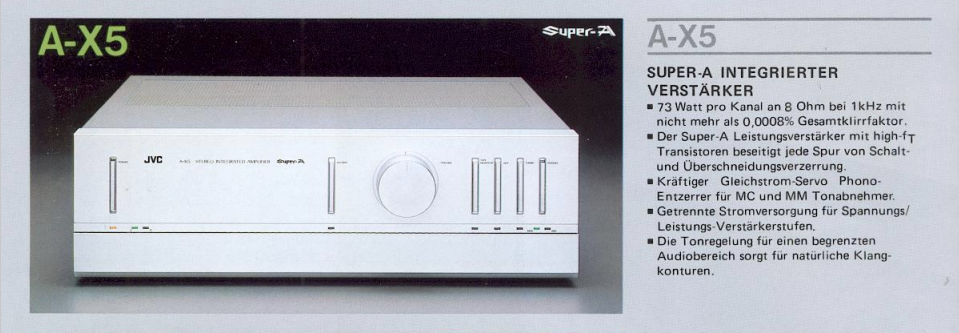
- Picture: JVC A-X 5

- Picture: JVC A-X 5

Tests
- Stereoplay April 1981 9 amplifiers in comparison
Reports
- Quite rare integrated amplifier from the late seventies by JVC in the then fashionable pseudo-puristic front flap design.
- Compared to the big brother A-X9 noticeably slimmed down in terms of haptics, internal design and circuit luxury equipment, but compared to this hardly impoverished quality by a sophisticated and well-equipped audio electronics, which is currently an average "high-end" integrated amplifier of the 1500 € class would be good to face - but then ultimately not offered there.
The silicon and circuitry used in the A-X5 is, from today's point of view, simply exquisite, for example: 2SK146 JFETs in the phono preamplifier, 2SK150 JFETs in the Class-A driver stage and 2SC2525L/ 2SA1075 RETs as output stage.
- Zero electrolytic capacitors in signal path and a true DC design not only of individual amplifier stages but of the entire device.
- The only coupling capacitors are a couple of oversized PP foil C's at the output of the Phonopre`s.
The whole thing runs at +- 50V and has a bandwidth that would make the amp usable as an HF amplifier. Separate transformer windings for phonopre and driver stage. 2 x 6800 µF charging electrolytic capacitors per channel for the output stages and complex voltage regulators for the preamplifiers. Everything is of course fully discrete. Of course the A-X5 needs a fresh set of electrolytic capacitors after 34 years, but thanks to the careful design of the circuitry, the amount of capacitors is manageable.
- On the negative side, the A-X5 offers quite modest crosstalk attenuation between inputs and is not exactly low impedance stable.
- In this respect a typical Seventies amp, which should not be concealed here.
